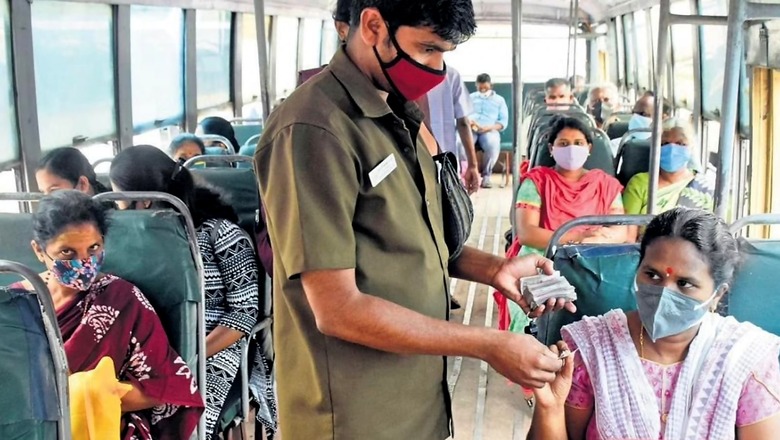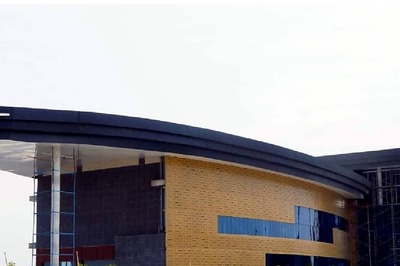
views
The state transport department had revealed that women in Tamil Nadu travelled in city buses under the free public transit scheme 131 crore times since last year. Let’s look at what the scheme had done to not only underprivileged people but for all women.
When the Dravida Munnetra Kazhagam (DMK) came to power in Tamil Nadu in May 2021, various schemes were queued up for people’s welfare. During the election, the party in its election manifesto announced several eye-grabbing schemes including free travel for women on city buses, Rs 1,000 monthly honorarium for women heads of households and a subsidy of Rs 100 per cylinder.
Among them, free bus travel for women and Rs 1,000 per month scheme for women heads were very well received by the public. Chief Minister MK Stalin, who went to the legislature on the day of his inauguration, immediately signed the file for free travel on city buses for women. In addition, it was announced that transgender people can also hold free travel on city buses. Thus, for the past one year, women have been provided free travel on ordinary city buses across Tamil Nadu.
The welfare schemes for women provided by the DMK government became a national talk and reference point for other states as well. Majorly, the intention of the scheme is to increase the mobility of women. Similarly, in the past one year, women have travelled 131 crore times for free on city buses, according to the Department of State Transport. As per the department’s data, the state government has spent Rs 2,100 crore on this scheme.
Well, why do women need this free ride? Let’s know in what ways this project has benefited. Predominantly, the project was inspired to empower women in a male-centric society. The Tamil Nadu government itself has announced the purpose of this scheme is to increase the mobility of women. At the end of the first year, the scheme reportedly increased the outflow of women and their savings.
Tamil Nadu is a pioneer in implementing innovative free programmes for the welfare of people. Earlier, the Tamil Nadu government provided freebies, especially to people living below the poverty line. Some electronic goods are also provided to enhance their economic and educational development. Now, some schemes have changed beyond the stereotype.
Simply put together, women’s participation in wages is limited by socio-economic and cultural problems and asymmetries in the labour market opportunity structure. An important factor in this is their mobility (societal participation), i.e. access to reliable and safe transportation systems to education and workplaces. Buses are the lifeblood of most of the students and working women across Tamil Nadu such as municipal female employees, health professionals, housemaids, labourers, florists, female guards or teachers.
In fact, free travel encouraged more women to use public transportation, increasing their presence in public places. Apparently, this increased security in the community and brought more women out of their homes and indulge in social events too. Eventually, there is also an urgent need to introduce travel concessions for students, women, transgender people, differently-abled and the elderly across India. According to industry experts, the free travel policy will have a significant impact on the economy and will be a turning point in India’s post-Covid19 recovery and growth.
Although the project was well-received, there were some initial problems. Yet there is no doubt that in the one year since its inception, the scheme has brought many benefits to women in Tamil Nadu. If a project/scheme is brought for marginalized or vulnerable people in any society it will surely come within social welfare. The same goes for this project. This project has helped women from all walks of life to establish themselves in this community.
Read all the Latest News , Breaking News , watch Top Videos and Live TV here.


















Comments
0 comment